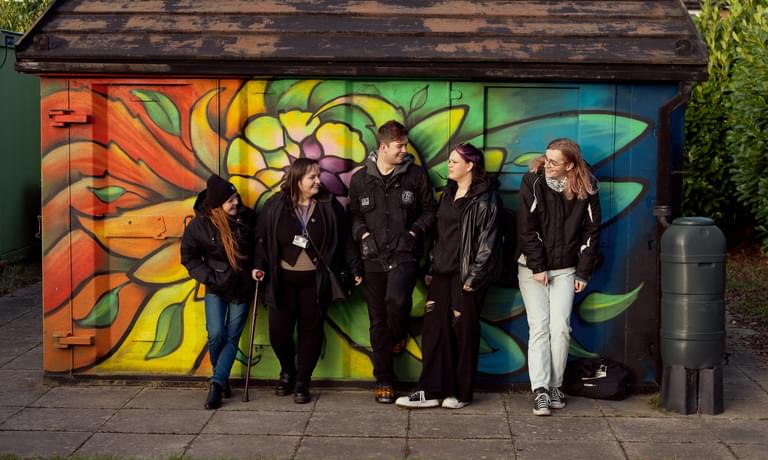We all need good work, a level of control over our work and enough income to live healthily. That means safe working conditions, fair contractual conditions, and stable employment that pays at least the real Living Wage. It’s important, too, that people who are unable to work are not left behind financially.
Everyone needs a certain level of income to afford the basics for a healthy life. The growing use of food banks has highlighted the issue of food insecurity, and lower-income families find it harder to put healthy food on the table.
It’s not surprising that being out of work, in low-paid employment or under-employed, has a significant and long-term negative impact on health and wellbeing. The welfare system also has a big impact, and benefit sanctions can be particularly harmful to people’s health.
Healthy jobs are not just about money, either. They can be about hours: part-time work and zero-hours contracts can be a problem, but so can overwork and work-life balance. And healthy jobs can also be about working culture: feeling valued, being heard and having a workplace free from harassment and discrimination.

Stating the facts
- Black and minority ethnic women are around twice as likely as white workers to be employed in insecure jobs. (Source: TUC, BME women are twice as likely to be in insecure jobs as white workers)
- Young people aged 16-34 with mental health conditions are almost five times more likely to be economically inactive than young people without.
- 987,000 young people aged 16-24 in the UK are not in education, training or employment. Unemployment and low-skilled work are both closely associated with long-term physical and mental health issues.
- 987,000 young people aged 16-24 in the UK are not in education, training or employment. Unemployment and low-skilled work are both closely associated with long-term physical and mental health issues.
Our work on jobs, income and health
In March 2025, we launched a new priority within the Health Justice Fund - Good Work for Young People’s Mental Health which works with young people experiencing mental health problems to remove some of the barriers they face and support them to secure meaningful employment opportunities. Specialist employment support (known as Individual Placement and Support) has proven to be effective in supporting people with severe mental health difficulties into employment. People’s Health Trust will work with the local mental health charities to determine whether it is also an effective approach for young people aged 16 – 24 with acute, mild to moderate mental health problems – making this a ground-breaking approach. Find out more.
We are calling for the government to invest in local employment support for communities least likely to have access to good work. Support to access and remain in good work requires tailored activities from sources people trust. When this is delivered by and for communities with specific expertise in the needs of the local community, the support is more likely to include the right knowledge and skills. We also support the campaign to implement an Essentials Guarantee, establishing a legal minimum in Universal Credit that deductions cannot push people below, based upon the cost of essentials.
We support the Living Hours campaign led by Living Wage Foundation. This calls for:
- at least four weeks’ notice of shifts, with guaranteed payment if shifts are cancelled within this notice period
- the right to a contract that reflects accurate hours worked
- a guaranteed minimum of 16 hours work per week, unless the worker requests otherwise.
Read more in our community manifesto for health justice.
"We have been hearing for many years from young people seeking support for their mental health, that they really want to find good places to work where they can build their skills and a secure future."
Simone Spray
Chief Executive, 42nd Street


Justice Prince - Overcoming barriers to employment
James talks about the improvement to his mental health and the skills he’s learned as part of Justice Prince’s Barriers to Employment programme supporting young people to gain qualifications and training.

The research on jobs, income and health
Local Action on Health Inequalities: Promoting Good Quality Jobs to Reduce Health Inequalities: report by the UCL Institute of Health Equity for Public Health England, 2021
Relationship between income and health: Research by the Health Foundation on self-rated health, grouped by household income, 2021
Living in poverty was bad for your health long before COVID-19: Research by the Health Foundation, 2020
